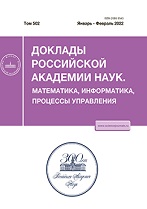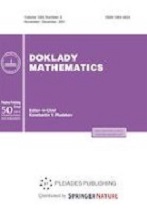|
This article is cited in 2 scientific papers (total in 2 papers)
MATHEMATICS
Principle of dynamic balance of demographic process and the limits of World population growth
V. V. Zakharov
Saint Petersburg State University, Saint Petersburg, Russia
Abstract:
The article proposed a new model of the dynamics of growth of the World population, including discrete equations of the dynamics of percentage increases in integral volumes of inflow and outflow and a balance equation of population size. The principle of the dynamic balance of the demographic process and the condition of interval dynamic consistency based on this principle are formulated. A sample example of forecasting the growth of the World population in the period from 2011 to 2021 is given, demonstrating the possibility of building linear dynamic trends in the percentage increase in the integral volume of dead people, dynamically consistent with the corresponding intervals of statistics on the integral volumes of born children of earlier periods. Based on the proposed model, a forecast of the growth of the World population after 2021 was built, assuming that by 2050 the population will reach 9.466 billion, and in 2062 it will reach the maximum level of 9.561 billion, after which the World population will begin to decline and in 2100 will amount to 8.670 billion.
Keywords:
World population growth, balance equation, dynamic balance principle, forecasting.
Citation:
V. V. Zakharov, “Principle of dynamic balance of demographic process and the limits of World population growth”, Dokl. RAN. Math. Inf. Proc. Upr., 513 (2023), 108–114; Dokl. Math., 108:2 (2023), 419–424
Linking options:
https://www.mathnet.ru/eng/danma423 https://www.mathnet.ru/eng/danma/v513/p108
|


|





 Contact us:
Contact us: Terms of Use
Terms of Use
 Registration to the website
Registration to the website Logotypes
Logotypes







 Citation in format
Citation in format 
